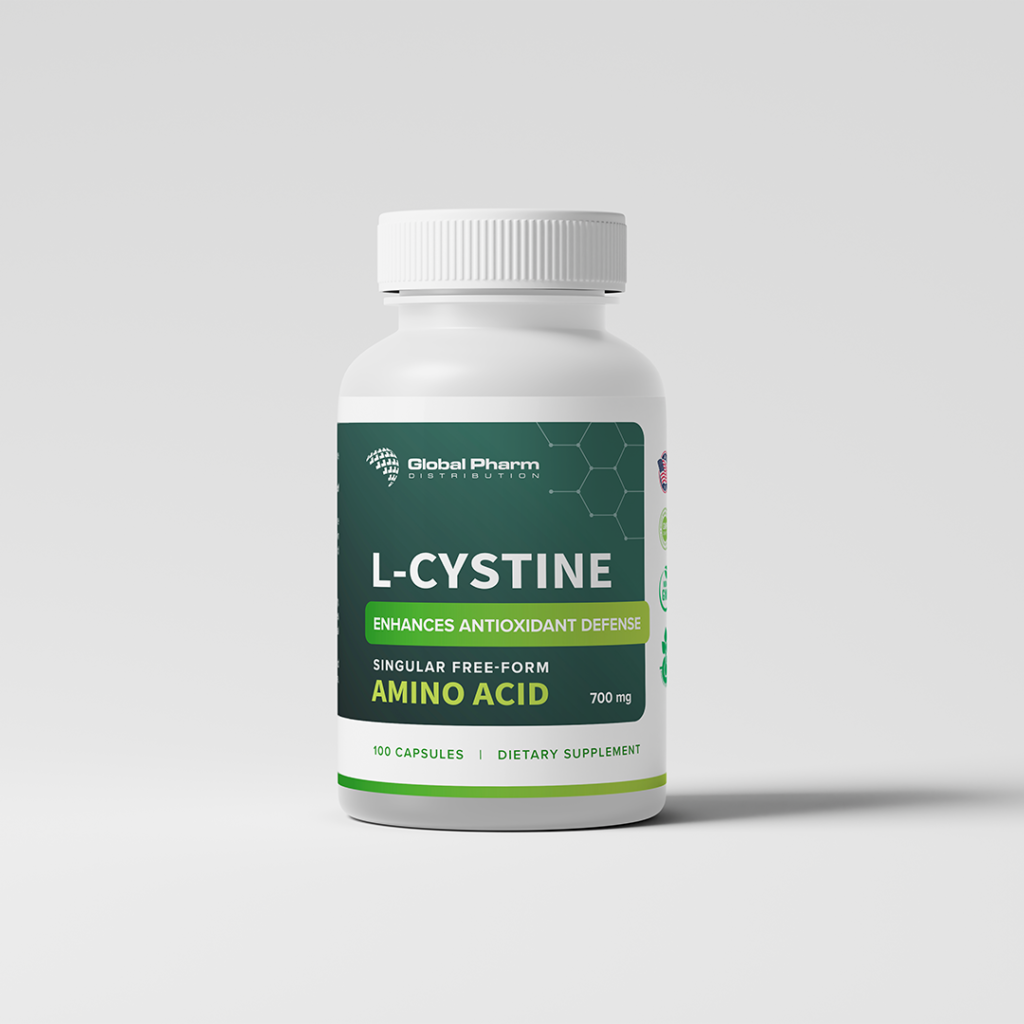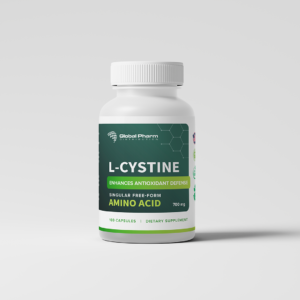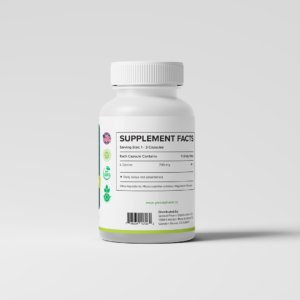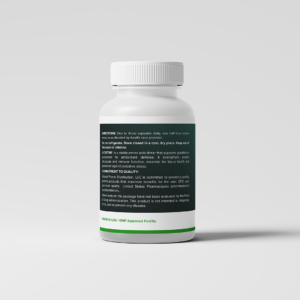Description
NDC: 53335-060-14 (capsule), 53335-059-29 (powder)
Weight: 4 Oz
L-Cystine, the oxidized dimer of L-Cysteine, is a non-essential sulfur-containing amino acid that plays a critical role in maintaining cellular redox balance and tissue integrity. It serves as a reservoir for cysteine, which is a precursor to glutathione—a powerful antioxidant essential for respiratory and immune health—and taurine, an antioxidant vital for myocardial function. L-Cystine supports the formation of hair, skin, and connective tissues like collagen, and aids in detoxifying heavy metals while protecting the liver and brain from free radical damage caused by alcohol, drugs, and cigarette smoke. Research suggests its potential in promoting healing and supporting immune function, particularly under oxidative stress (e.g., Droge et al. 1992).
L-Cystine is particularly beneficial for individuals seeking to enhance antioxidant defenses, support tissue repair, or manage oxidative stress-related conditions. Its stability as a dimer improves its storage and bioavailability compared to cysteine. Manufactured using premium pharmaceutical-grade materials in a GMP-approved facility in the USA, L-Cystine is free of fillers, binders, or coloring agents, with no known side effects when used as directed.
Directions: Take 1-3 capsules daily or as advised by your healthcare provider. Pair with vitamins and minerals; GPD’s MVM (Multivitamin) is recommended. Powder equivalent: 1/4 level teaspoon per capsule.
Key Benefits
- Supports Antioxidant Health: Enhances glutathione and taurine production.
- Promotes Tissue Integrity: Aids hair, skin, and collagen formation.
- Enhances Detoxification: Protects against heavy metals and free radicals.
References
- Droge W, et al. (1992). “Effects of cysteine and glutathione on immune function.” American Journal of Clinical Nutrition, NIH.
- Meister A. (1983). “Glutathione biosynthesis and its regulation.” Annual Review of Biochemistry, NIH.
- Huxtable RJ. (1992). “Physiological actions of taurine.” Physiological Reviews, NIH.
- Flora SJ, et al. (2008). “Cysteine in metal detoxification and free radical scavenging.” Toxicology Letters, NIH.
These statements have not been evaluated by the Food and Drug Administration. This product is not intended to diagnose, treat, cure, or prevent any disease. Consult a doctor or medical professional before use, especially if you have underlying health conditions or are taking other medications.
Additional Information The following points provide insight into L-Cystine’s plasma levels and their association with various health conditions, reflecting its role in metabolism:
- Normal Range: 20-100 micromol/L (approximate clinical range, reflecting cysteine-cystine equilibrium).
- Conditions Associated with Low Levels:
- Malnutrition (due to reduced sulfur amino acid intake)
- Chronic oxidative stress (e.g., chronic diseases like rheumatoid arthritis)
- Liver dysfunction (impaired glutathione synthesis)
- Conditions Associated with High Levels:
- Cystinuria (genetic disorder causing cystine accumulation)
- Excessive supplementation (from overdosage or dietary excess)
- Acute oxidative stress (e.g., post-trauma or burns, increasing disulfide formation)
Notes: L-Cystine, as a dimer of cysteine, supports antioxidant defense through glutathione and taurine synthesis, aids tissue repair, and protects against heavy metal toxicity and free radical damage. Low levels may indicate nutritional deficiency or oxidative stress, while high levels are often linked to genetic conditions like cystinuria or acute metabolic demands. These associations are correlative and require further research for causal confirmation. For more technical information, please click here. Consult a doctor or medical professional before use, especially if you have underlying health conditions or are taking other medications.
 Global Pharm Distribution, LLC
Global Pharm Distribution, LLC




